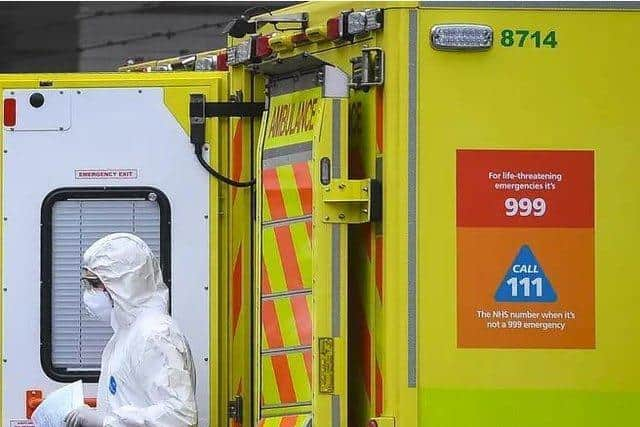Bucks nurses shortlisted for national awards for vaccinating school children during first lockdown
and live on Freeview channel 276
The School Nursing Immunisations Team at Buckinghamshire Healthcare Trust is up for a national award, after the team completed thousands of vaccinations in lockdown.
The Bucks nursing team has been shortlisted for their efforts jabbing children during the first few weeks of lockdown.
Advertisement
Hide AdAdvertisement
Hide AdDuring lockdown one, this nursing squad jabbed over 7,000 children a record number for a three to four month period, the trust says.


The government paused all school-based immunisations at the start of the pandemic. Yet, the Bucks team was able to carry on jabbing, by working closely with schools and Public Health England (PHE).
Permission was granted after the nursing team completed risk assessments and revealed plans to safely jab schoolchildren.
Vaccinations were delivered in accordance with the Government' s PPE and social distancing guidelines. The team visited the school in the build-up to vaccination days to lay markers and signs instructing the children on how to safely get jabbed.
Advertisement
Hide AdAdvertisement
Hide AdParents were contacted before vaccinations took place to check the circumstances within that child's household. To ensure the child was well and to check if a vulnerable member of the family was shielding.
Later on, the team also set up marquees for drive-through vaccination clinics for school-aged children.
Sam Smissen, Buckinghamshire Immunisation Team lead, said: “COVID or no COVID, as a team we thought it was important to try and continue to prevent other outbreaks of diseases in
the community. Parents were concerned children would miss their vaccines and were calling GPs.
Advertisement
Hide AdAdvertisement
Hide Ad“Our aim was to vaccinate as many children and young people as possible but, by continuing our programme, we were also able to provide young people, many of whom had had their
lives and education disrupted, with access to a healthcare professional.
This person would not only vaccinate them but could potentially pick up any other worries they might have – whether a safeguarding issue or to support the young person with their mental health and wellbeing.”